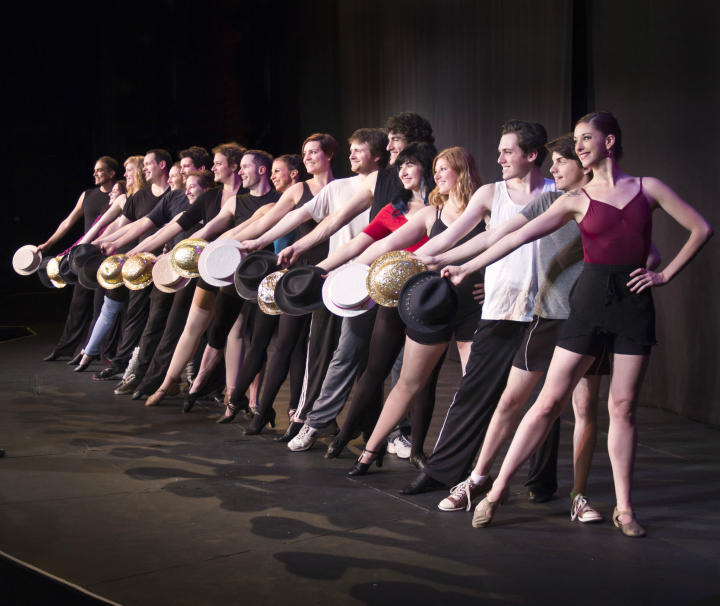Crowdfunding platforms make it possible for individuals and organizations of any size to harness social networks and raise start-up capital for projects that might otherwise fail due to lack of funding. Each week, Xpress highlights notable Western North Carolina crowdsourcing initiatives that may inspire readers to become new faces in the crowd.
THE STRINGTOWN AMBASSADORS’ MANDOLIN HUNT
“It’s addictive,” says mandolin aficionado Arlo Blaisus of affording onlookers joy as a traveling musician. “It’s everything that I’ve ever wanted, but I’ve come to realize that as a professional musician, I’m going to need a professional quality instrument.” Blaisus — one half of the Stringtown Ambassadors, along with violinist Rosalind Parducci — has been plucking away at his current wooden companion since age 16. Unfortunately, a $4,900 price tag stands between the musician and a hand-crafted masterpiece by Colorado luthier Bobby Wintringham. The Stringtown Ambassadors aim to raise $4,000 by Friday, Jan. 16, to help purchase the one-of-a-kind instrument.
ASHEVILLE COMMUNITY THEATRE FLOOR
“In order to better support (literally!) the amazing work of the dancers, we need to replace our stage floor,” reads a newsletter from Asheville Community Theatre. “It just won’t do for someone to get a toe stuck in one of the gaping cracks or twist an ankle when landing on an uneven surface.” In addition to safety and aesthetic appeal, ACT says a smoothly surfaced floor will allow for more seamless transitions of sets and props across the stage. The nonprofit is accepting tax-deductible donations here and aims to complete the upgrade before the February opening of A Chorus Line.
EROTICA ASHEVILLE
“Erotica Asheville is a chance to explore our experiences visually through artistic expressions and initiate a dialogue about sexuality,” reads the event’s campaign page. And “to create a catalyst for genders to participate in an equitable, sexual conversation.” The group art exhibit brings together sexuality-themed pieces by artists Taiyo la Paix, Allie Good, Mira Gerard, Zack Raines and Ren Allen. Suggested donations of $20 per person will benefit the Western North Carolina AIDS Project. Organizers aim to raise $1,500 for the 21 and up opening reception, which takes place at The Asheville Loft downtown, on Saturday, Jan. 17, at 8 p.m. Artwork will be displayed until Saturday, March 14.
Send your crowdsourcing campaign news to kmcreynolds@mountainx.com. A limited number of campaigns will be highlighted each week, at Xpress’ discretion. Campaigns must be locally based and should represent a current project with an achievable goal. Conditions are subject to change. Read about more Western North Carolina projects here.





Since crowdfunding is now mature enough to warrant updates on local efforts, it has become (to me anyway) a little confusing. According to a recent report (2014) by The Crowdfunding Center, there are two primary types of crowdfunding. These are:
1. Rewards Crowdfunding: entrepreneurs pre-sell a product or service to launch a business concept without incurring debt or sacrificing equity/shares.
2. Equity Crowdfunding: the backer receives shares of a company, usually in its early stages, in exchange for the money pledged. The company’s success is determined by how successfully it can demonstrate its viability.
Perhaps there is not sufficient detail provided regarding these three activities, but how do they meet either criteria? Or does the term mean something else locally?
Hello again, Dionysis!
My definition of crowdfunding is quite a literal and broad — any project where the creator reaches out and asks the community for money, or in other words, a collaboration that requires multiple members of the community to come together with ideas and funds to make something happen. That joint effort is what makes the campaigns interesting to me, because it reveals a broader interest of the community rather than simply profiling what one person has the resources and skills to do without help.
The Crowdfunding Center’s definition, I believe, misses that nuance by focusing solely on traditional returns to the backer. I wonder if compensation — through equity, products, etc. — is the main plight of a backer. I think often it is not, and I’ve actually come across many prizes or “returns” that are simply gestures of gratitude, for example, a mention on facebook, virtual high five, or permission to shave the owners’ beards (really). Perhaps crowdfunding platforms intended to facilitate traditional returns initially, but morphed into something else along the way?
When I’m scouring the web for Faces in the Crowd, I use a different set of criteria than the CC. First, projects must be local, and I give priority to those that seem to be active and achievable. I try not to include seemingly abandoned projects, which appear frequently. I also aim to cover projects that exist to benefit more than just the creator. For example, I recently covered a woman who wanted to complete a harp therapy accreditation course so she would be allowed to play in medical and other settings. I would not have covered plain old harp lessons despite the intrinsic value of an individual’s pursuit to learn music. Finally, I don’t disqualify projects that don’t use Kickstarter, IndieGogo, etc., because the platforms are just one tool to get the community on board. ACT’s floor, for example, reaches out to Ashevilleans to provide smoother theatrical productions without any immediate return besides gratitude.
In short, I’m looking for projects that enhance and are backed by the community.
I welcome your further thoughts on this! My educational background is in business, so the nuts and bolts of crowdfunding are often counter to what I’ve learned works in traditional business and fundraising settings. It’s a strange creature.
I do appreciate the thorough, thoughtful and prompt response. I see where the definition has broadened from my initial understanding of the concept. As someone who has worked almost exclusively in the non-profit world (although very much a business), I sometimes have a hard time distinguishing between legitimate crowdfunding effors and (as mentioned previously in a post), simply being a euphemism for crowd panhandling. When funding does flow into something positive for the sources of funding or to the community at large (even in a non-pecuniary way), it should be celebrated. When funding goes to benefit the recepient only, then it seems an inappropriate use of the concept regardless of how many Facebook ‘thanks’ it generates. No slight or disrespect meant to anyone. I tend to share the view that I’ve heard others express (or have read about), that crowdfunding could ultimately sour on the public due to an increase in inappropriate requests for funding. I think the whole concept is great, but I do see risks.
Thank you again for the detailed reply.
Absolutely! And I very much appreciate your ongoing, thought-provoking comments on this topic. I have my own reservations about crowdfunding and would encourage people to be selective and questioning of campaigns they do consider supporting.
Early bootstrapping and competitive business environments are helpful to consumers in many ways if you ask me. I see crowdfunding as a viable alternative to that traditional setting, especially for creative (often non-lucrative) projects — an alternative that definitely has risks and pitfalls along with the positives.
Makes perfect sense to me.
I can’t help but think of a recent trend that seems to be something of an offshoot to crowdfunding. I’ve noticed in the past couple of years that many people who post videos on YouTube (their ‘channel’) have begun to add the ability for viewers to ‘fund’ various things by using PayPal or credit cards. The list is long, but a couple of examples are a teenage kid who fancies himself a ‘preacher’, asking viewers to fund his ‘ministry’, or a guy who solicited funds to buy himself a new expensive telescope for ‘scientific research’ (he’s just some guy who wants people to pay for his hobby). There are other such examples. I guess it’s human nature to try and capitalize on a potential new funding source. I know when I see that kind of thing, my reaction is something like ‘why don’t they do what most people do who need or want something…get a second part-time job or squirrel away a few bucks on a regular basis and buy it; that’s what I always did’.
But it’s a different world now.
Thank you again.
I also would file most hobby-funding instances among the downsides.
Enjoy the rest of your weekend! Thanks!
Thanks; same to you.